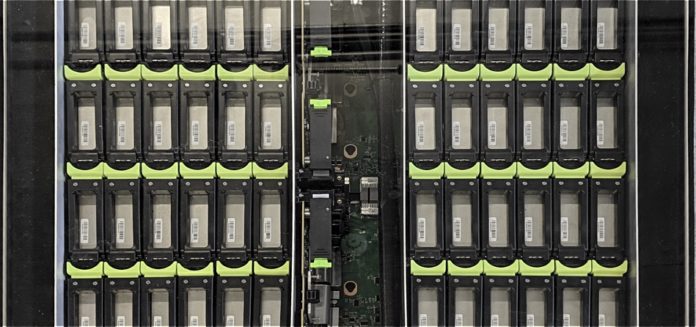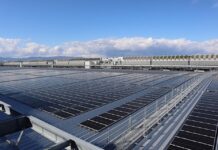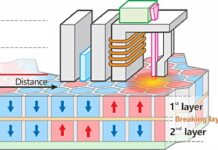Iceotope has announced its liquid cooling system for disk drives – which, on examination, doesn’t do much at all.
The news came out on the first day of December that, with Meta, Iceotope had cooled disk drives in a high density enclosure with its immersion (liquid) cooling and found that it equalized temperature across a JBOD array. Iceotope said the system’s “virtually silent operation helps mitigate acoustic vibrational issues associated with air-cooled solutions.” The variation in temperature between all 72 20TB HDDs in the 4U OCP-compliant enclosure was just 3°C – less variation than with air cooling. The drives could operate with coolant temperature of up to 40°C. Iceotope said system-level cooling power was less than five percent of the total power consumption. That was basically it.
Neil Edmunds, Iceotope director of Innovation, said: “The study demonstrated that liquid cooling for high-density storage successfully cools the drives at a lower, more consistent temperature for fewer drive failures, lower TCO and improved ESG compliance.” Did it actually demonstrate this?
We took a look at the actual study report – “Single-Phase Immersion Cooling Study of a High-Density Storage System” – to see what exactly it proved. You can get your own copy by requesting it on an Iceotope webpage.
The maximum air-cooling fan power in the starting Bryce Canyon disk drive enclosure was 224 watts. The operational use would be less but no measurement was provided by the researchers.
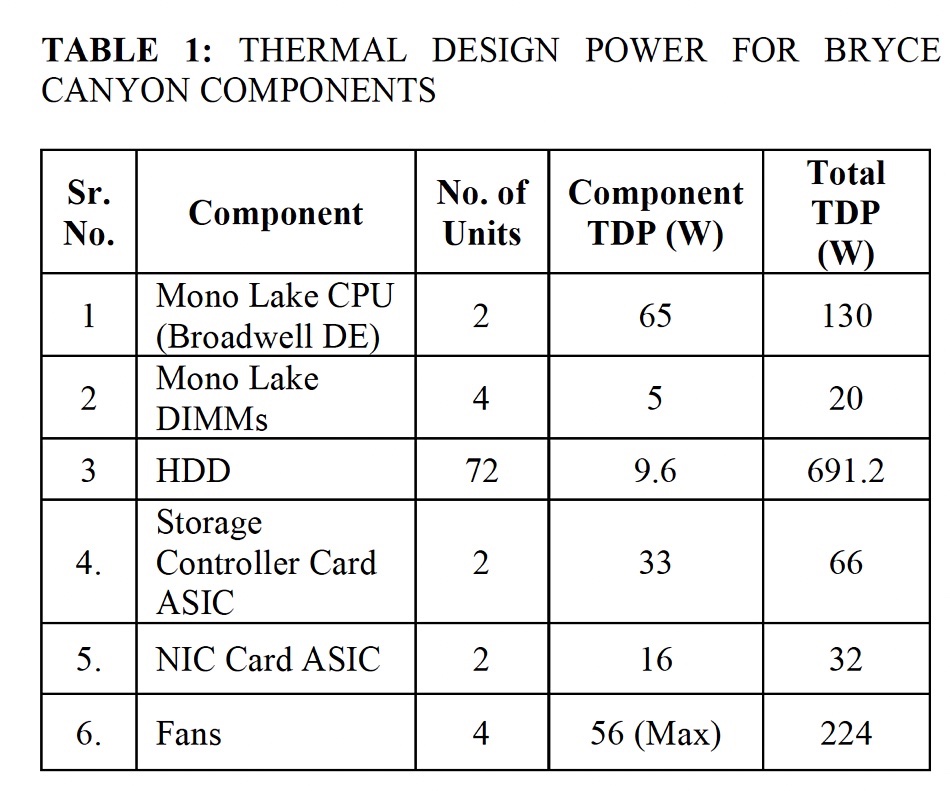
It sums to 1163.2 watts and the air cooling fans, if operating at maximum power constantly, would be responsible for 19.3 percent of that. The liquid cooling component is said to be less than 5 percent of the total power consumption – 45.6 watts – so that is a definite benefit.
Saket Karajgikar, R&D engineer – strategic engineering and design at Meta, explained a little more, telling us: “[Air and water cooling are] comparable at lower temperature. However, at higher temperatures, pumps in immersion cooling draw lower power.”
An Iceotope spokesperson said: “I think one of the issues is that higher capacity storage disks will draw higher power therefore creating more heat. That will affect either space efficiency (they’ll need to be more spread out to allow air circulate within the storage enclosures), or reliability (air will not be able to cool effectively in high density JBODs, causing increased thermal shutdowns, potential data loss and higher service/replacement costs). In any case, there is general acceptance in the datacenter sector that air as a cooling medium is no longer effective for rising heat densities, whereas liquid cooling is seen as a ‘when not if’ technology.”
The paper was less assertive about the lower vibration experienced by the drives than Iceotope’s press release: “The proposed cooling solution may help mitigate acoustic vibrational issues for drives often encountered in air-cooling solution. The solution is virtually silent in operation.” It noted: “In the absence of fans, there would be no acoustic vibrations which could potentially hinder the drive performance. … the design approach could potentially eliminate acoustic vibration issues often encountered in an air-cooled solution.”
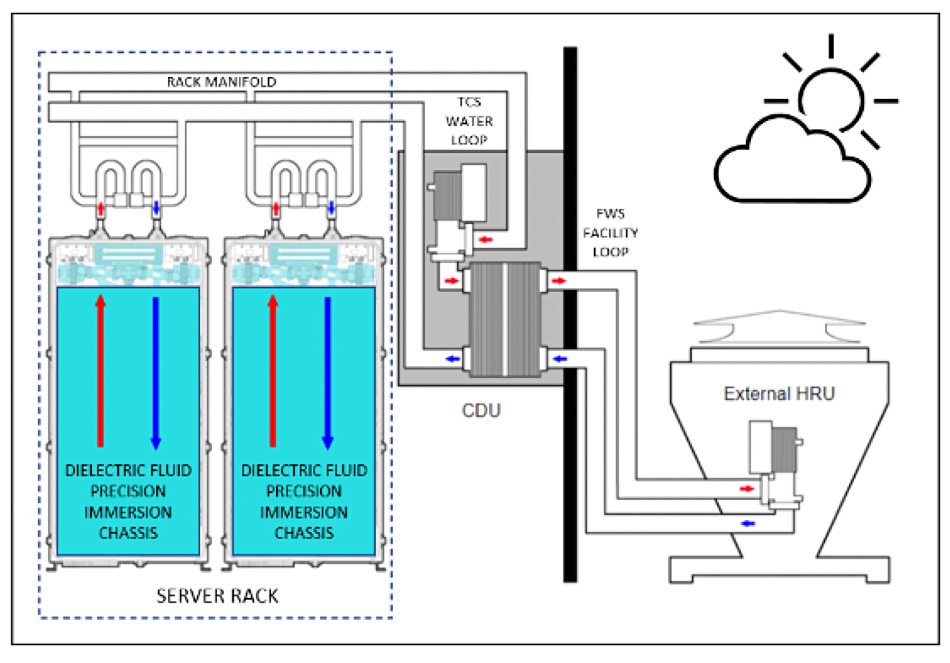
In other words, the effect of liquid cooling on acoustic vibration experienced by the drives was not investigated. The amount of acoustic vibration was not measured – there is no data in the paper.
There was no test of drive failure rates with the immersion cooling in operation. When Iceotope’s Neil Edmonds declares “The study demonstrated that liquid cooling for high-density storage successfully cools the drives at a lower, more consistent temperature for fewer drive failures, lower TCO, and improved ESG compliance,” this should be taken to mean “potentially fewer drive failures.”
A May 2014 Backblaze blog by Brian Beach asked: “How much does operating temperature affect the failure rates of disk drives?” And answered: “Not much.” It read: “After looking at data on over 34,000 drives, I found that overall there is no correlation between temperature and failure rate. … As long as you run drives well within their allowed range of operating temperatures, keeping them cooler doesn’t matter.”
The Iceotope immersion cooling requires less electricity than air-cooling fans, but would appear to have no effect on drive failure rates, if Backblaze is to be believed. The potential effect of lower acoustic vibration was not tested by the researcher. The TCO over time was not investigated either. So don’t read too much into it.


